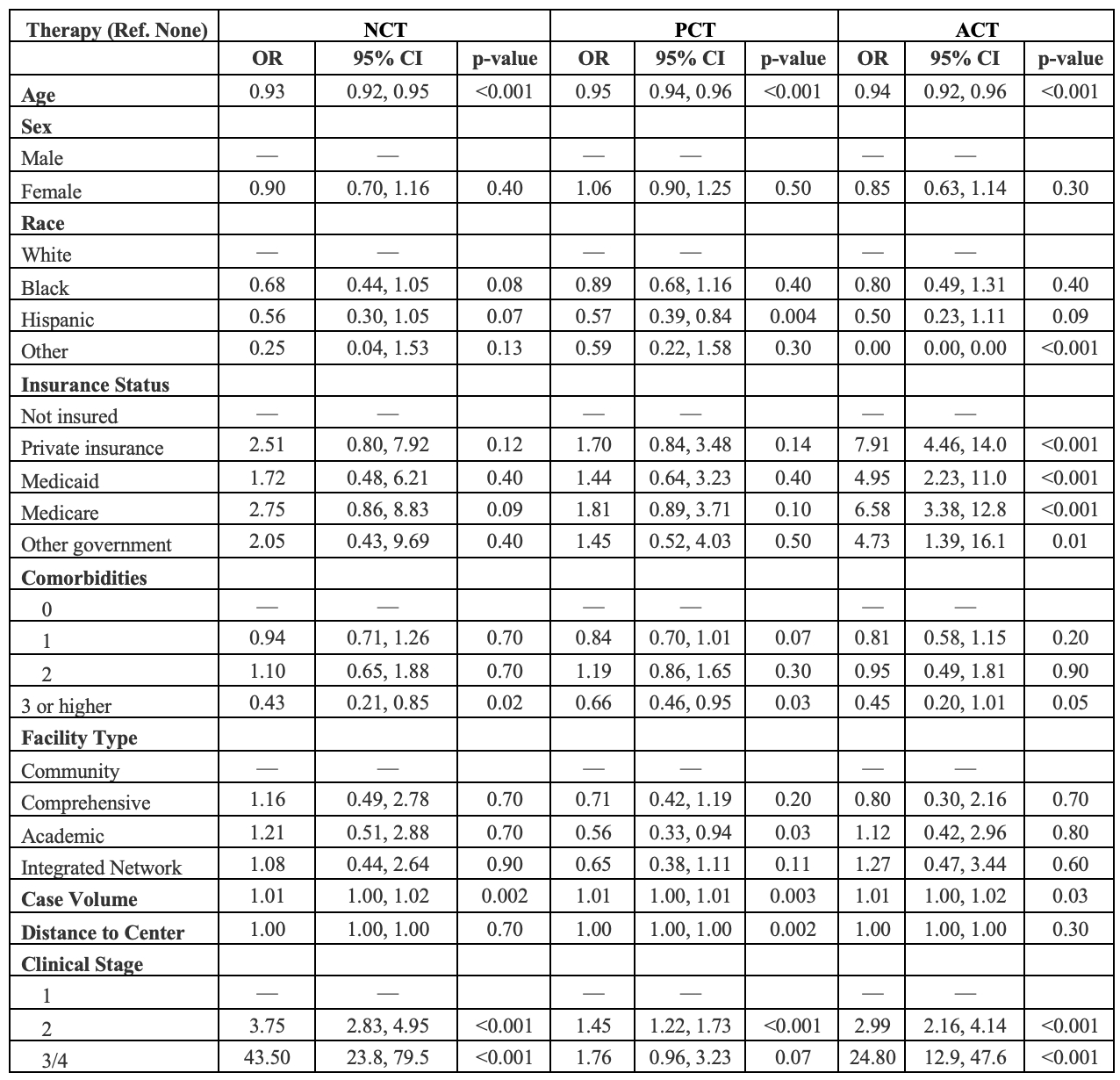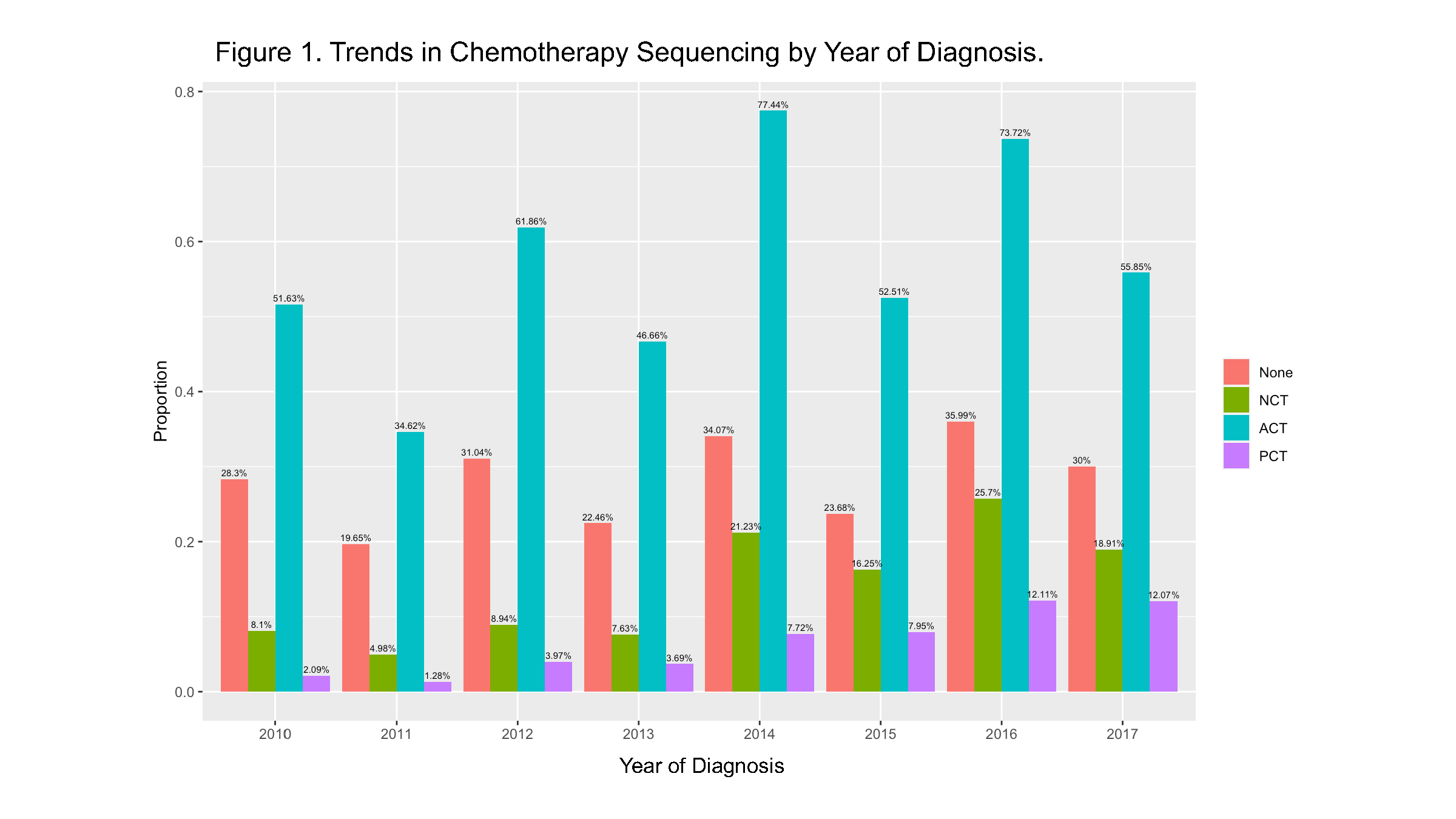Background
Neoadjuvant chemotherapy (NCT) is a widely accepted and recommended practice for pancreatic ductal adenocarcinoma (PDAC) due to a significant number of patients who fail to receive adjuvant chemotherapy. Although the rate of NCT is increasing for head of PDAC, NCT in tail of pancreas PDAC is not often practiced, and the reasons are ill-defined. This study investigates national rates, trends, and factors affecting NCT utilization, especially the rate of omission of chemotherapy in tail of the pancreas PDAC.
Patients and Methods
Using the National Cancer Database, patients diagnosed with AJCC 8th Ed. Stage 1-3 PDAC in the tail of the pancreas who underwent surgery with curative intent from 2010-2020 were identified. Changes in chemotherapy sequence over time were identified. We performed multivariable regression models to assess factors affecting the receipt of each type of treatment (NCT, PCT, ACT, or none). Factors included age, sex, race, ethnicity, insurance, Charleson Comorbidity Index (CCI), clinical stage, facility type, distance to facility (miles), and case volume.
Results
A total of 4106 patients were diagnosed, and 51.0% were female. Mean age of the cohort was 68 (10) years. 54.3% of patients presented to an academic institution, and 60.0% of patients had no comorbidities. 38.8% of patients presented with Stage IB disease. Majority of patients (55.3%) were treated with ACT while only 12.6% were treated with NCT, however rate of omission of chemotherapy was 31%. The use of NCT steadily increased over the study period, especially for Stage II disease. Factors affecting utilization of NCT were age [OR 0.93 (0.92, 0.95], CCI [3 or more OR 0.43 (0.21,0.85)], institutional case volume [OR 1.01 (1.00, 1.02)], stage [II OR 3.75 (2.83,4.95); III & IV OR 43.5 (23.8, 79.5)], and insurance status [unknown OR 7.26 (1.58,33.4)] (Table 1).
Conclusion
This study is the first to define national trends in chemotherapy sequencing in tail of pancreas PDAC in a national cohort. Moreover, our findings highlight the underutilization of NCT compared to ACT and identify patient, tumor, and facility factors that affect adherence to evidence-based treatment protocols across the nation. The significantly high rate of omission of chemotherapy indicates the importance of NCT in the tail PDAC.

Table 1. Multivariate Regression Evaluating Predictors of Chemotherapy Utilization.
